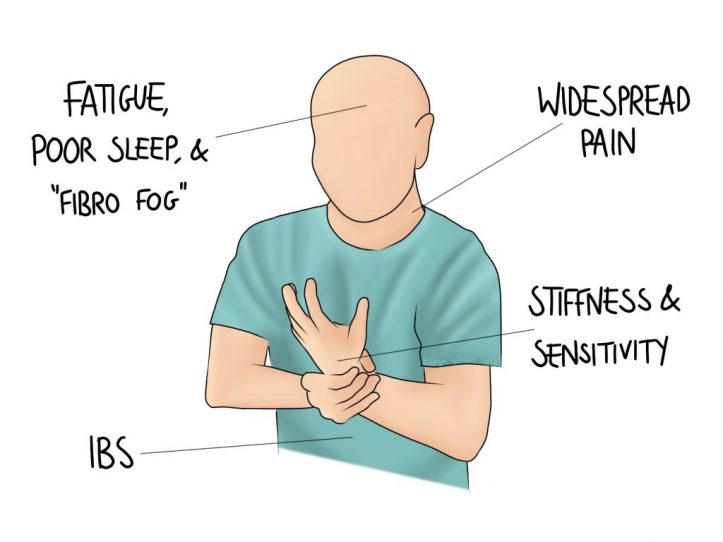What is Fibromyalgia? Fibromyalgia is an over long term condition that causes intense pain and numbness all over the body. Unlike arthritis, this is not due to problems with your bones, joints or muscles as in other cases. Instead it is believed to be caused from your central nervous system not being able to process or control pain signals coming from any part of your body.
The cause of Fibromyalgia is not yet known medically. It is believed to have a connection to the central nervous system, brain chemistry, and even hormones. This disorder is also believed to be related to the quality of sleep and stressful life events. The symptoms of fibromyalgia do vary from person to person. However, there are common symptoms that many people report feeling such as chronic pain, headaches, irritability, depression, moodiness, lack of concentration, and sleepiness.

If you suffer from fibromyalgia or any other chronic pain condition you might have what is called an anxiety disorder. This type of anxiety can be very crippling for those who have it. In fact, some sufferers may find their lives are completely unmanageable while others barely ever feel happy. This is because the brain which controls your emotions and behavior sends conflicting signals to your brain causing you to feel sad or happy. This often leads to depression.
Another possible fibromyalgia symptom is chronic fatigue syndrome. Chronic fatigue syndrome or CFS is believed to be a result of the brain not being able to effectively send pain signals to your nerves. This makes it difficult to experience pain since you are constantly feeling “overheated” and “burned out.” Most people diagnosed with fibromyalgia also report sleeping problems.
You may also suffer from depression without fibromyalgia. This happens when your fibromyalgia includes severe depression or other mental health issues. This can make it difficult to get a good night’s sleep and your appetite becomes depressed because you don’t think you are gaining any benefits from your diet.
Other physical signs of fibromyalgia include widespread pain over multiple areas of your body, rashes, unexplained fever, and unexplained weight loss. If you are experiencing any combination of these symptoms you should see your doctor to determine if it could be a sign of Lupus, HIV, or other rheumatoid arthritis diseases. You should also consider the risk factors for developing fibromyalgia. These risk factors include:
If you are someone who has been diagnosed with fibromyalgia, you are probably familiar with some of the symptoms that help determine the disease. If you are someone without fibromyalgia, the same symptoms may help determine the disease for you. However, because some of these symptoms overlap with other disorders, you still need to have a medical evaluation to determine the cause. If you feel you have been diagnosed with this condition, you may want to learn more about it and what to do next. You may have been diagnosed with fibromyalgia but, you may have also been diagnosed with other disorders that are linked to this painful condition such as HIV, Lupus, fibromyalgia, depression, or other rheumatic diseases.
You may want to learn more about fibromyalgia so you will know if you are one of the millions of Americans who are affected by this disease. Fibromyalgia and depression often occur together, and you may find the symptoms of fibromyalgia are similar to symptoms of depression or another mental disorder. You can talk to your doctor about the similarities in symptoms of depression and fibromyalgia and how they can both be treated. Fibromyalgia and depression can be managed, however, with the right treatment plan. Early diagnosis and treatment of fibromyalgia and depression can help relieve the symptoms and complications associated with this illness.